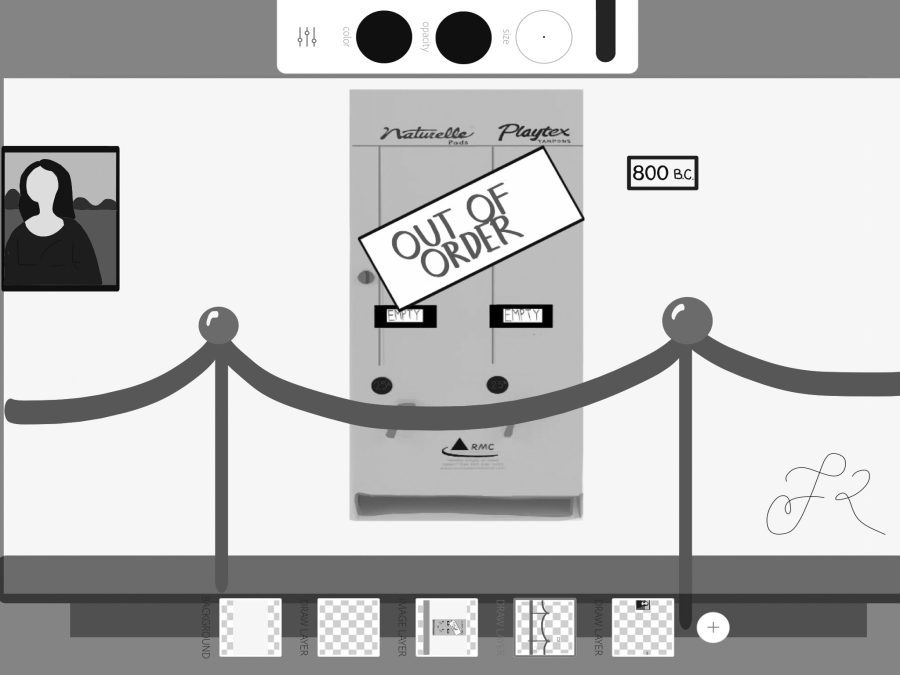The conversation about menstrual cycles, or periods, is often just that, a period at the end of a sentence. The discussion of something natural and normal that women go through once a month for the majority of their lives is a topic people shy away from talking about.
While tampons and pads are marketed in flowery packaging and advertised in fluffy commercials; the reality of periods are that they are unavoidable and bothersome. Despite this, many girls are hiding their supplies up their sleeves when they ask to use the bathroom during class and being asked if their less-than-sweet mood is a result of their time-of-the-month.
Schools should acknowledge that, like going to the bathroom for any other reason, having your period is something natural. Paly should make accommodations accordingly by providing access to feminine products in the bathrooms. Unfortunately the titanium boxes that are supposed to hold tampons vending-machine style are always empty and therefore pointless.
It wasn’t always like this. Albert Hidalgo, an experienced member of Paly’s custodial staff, remembers almost two decades ago, the dispensers were stocked. However overtime, the inventory got smaller and smaller, and eventually the boxes stopped being stocked altogether.
While the health office does provide some access to supplies, walking all the way from your classroom, to the office, then to a bathroom, is time-consuming and impractical. The simple answer is for schools to provide access to feminine products inside bathrooms for free.
Having a period is annoying in and of itself, so having the extra sense of security that you always can get what you need without having to frantically search through your backpack or ask a friend would make the entire week less irritating.
The question is, why should girls have to ask in the first place? The reality is feminine hygiene should be regarded with equal importance as general hygiene, something everyone should have access to.
Like soap and toilet paper, pads and tampons should be of regular accessibility and availability in the bathroom. This lack of access is something that not only applies to Palo Alto High School, but across the state and even the whole country. Coined the “tampon tax,” or “pink tax,” menstrual products are absent from the list of health and personal care products that are exempt from sales tax. This tax is added onto all menstrual product purchases in California and all but nine U.S. states. Ultimately, it all comes down to the tax codes.
As reported by the California State Board of Equalization, California sales tax is applied to all retail sales of “tangible personal property.”
However, many different kinds of goods are exempt from these added taxes. If they fall in specific categories, different kinds of merchandise can be purchased without an extra penny added to the cost. For example, products deemed “Necessities of Life” are free of tax, including candy and confectioneries. Also under this category, the prescription drug, Sildenafil, also known as Viagra, is free of added taxes. Another category, “Industry Benefits,” includes goods of or relating to the entertainment industry, meaning you won’t be charged extra if you want to rent a movie.
So why are girls being taxed extra, but not even being provided access to basic needs in a place where they spend the majority of their time. School administration should not only continue to provide feminine products in the office, but on top of that, restart stocking the dispensers in the bathrooms.
Girls should be able to get whatever they need in one trip to the bathroom with no concerns.
It’s not a lunchtime conversation that everyone is comfortable with having, but menstrual cycles are something that do happen, and therefore should be should be accounted for, period.

